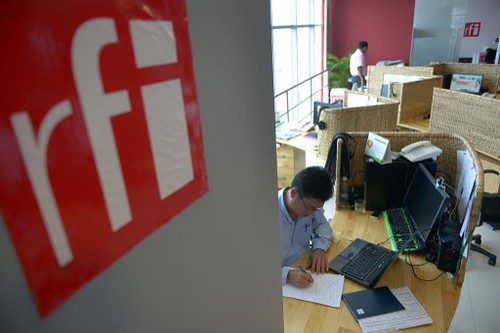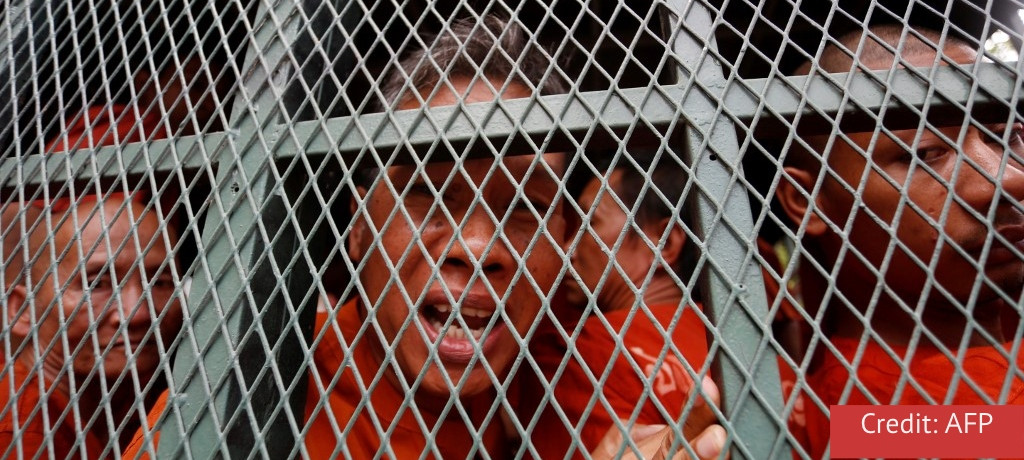Why IFJ is monitoring Cambodia’s media
In January 2020, Cambodian Prime Minister Hun Sen celebrated his 35th year in power, making him Asia’s longest-serving leader. At a meeting with local journalists on January 14, 2020, he boldly declared that he had no intention of stepping down and would be prime minister for the next 10 years.
As a constitutional monarchy, Cambodia’s constitution proclaims the country a liberal, multiparty democracy. However, the government of Prime Minister Hun Sen and his Cambodian People’s Party (CPP) are intent on securing leadership by undermining political opposition, civil society groups and the independent media.
Hun Sen entered the cabinet as a foreign minister for the People’s Republic of Kampuchea, a new government installed by Vietnam, in 1979. In 1985, when he was 32 years old he was unanimously elected as prime minister by the National Assembly to replace Chan Sy, who passed away while in office in December 1984.
In 1991, the four warring factions, including CPP agreed to sign the Paris Peace Accords which consisted of political settlements to end the conflict in the country. Article 15 in the agreement requires all sides to observe and respect human rights and fundamental freedoms. As part of the Paris Peace Accords, free and fair elections were overseen by the United Nations Transitional Authority in Cambodia (UNTAC) in May 1993. While Hun Sen lost the elections, he refused to accept the results. In a fragile power sharing arrangement, Hun Sen shared power with his political rival, the Funcinpec Party's Prince Norodom Ranariddh. In July 1997, Hun Sen staged a military coup, ousted his co-prime minister and killed Prince’s military and political allies.
While Hun Sen boasts about the Cambodia’s democratic credentials, the reality tells a different story. He has told journalists and civil society groups to hold the government to account by reporting on corruption and injustice, yet crackdowns on freedom of expression and punishes those critical of the government.

A Cambodian staff (C) of Radio France Internationale (RFI) in Khmer Service, works during the Inauguration of Radio France Internationale (RFI) in Khmer Service station in Phnom Penh on June 20, 2013. Credit: Tang Chhin Sothy/AFP
The steep decline of Cambodia’s democracy intensified in the lead up to the 2018 election. There has been increasing pressure on independent media following the closure of numerous independent news outlets.
The politicised judiciary has enabled abuses of power by the government, and the introduction of restrictive legislations has raised concerns. These have included amendments to articles 34 and 42 of Cambodia’s Constitution to require that every Cambodian “defend the motherland” and empower the government to take action against political parties if they do not “place the country and nation’s interest first.” And Cambodia’s lèse-majesté law which was adopted by parliament in February 2018 This law requires political parties as well as Khmer citizens to “primarily uphold the national interest. This law, with a punishment of up to five years in prison and a US$2,000 fine, has since been used to silence government critics and restrict press freedom.
Freedom of expression has been further curtailed, as the government has extended its power to monitor and control online news content, including websites and social media. This aims to obstruct and prevent the publication of content that the government says is “intended to create turmoil and to undermine national defence, national security, relations with other countries, the economy, public order and nation’s cultural”.
The broad term “fake news” has been used to suppress government critics. A proposed Fake News Law will tackle articles that cause “hostility” or “anger” or writing that “makes the problem become worse”. But it appears the law is more geared towards punishing journalists who expose injustice and corruption in Cambodian society. There are also concerns with access to information. Officials are able to reject requests for information that may harm national security. This has led to a refusal to provide information, hampering the ability of journalists to reporting freely, safely and independently.
With a worrying decline in press freedom and democratic rights in Cambodia, the IFJ and its affiliate in Cambodia will continue on its mission to promote press freedom and the people’s right to know.

